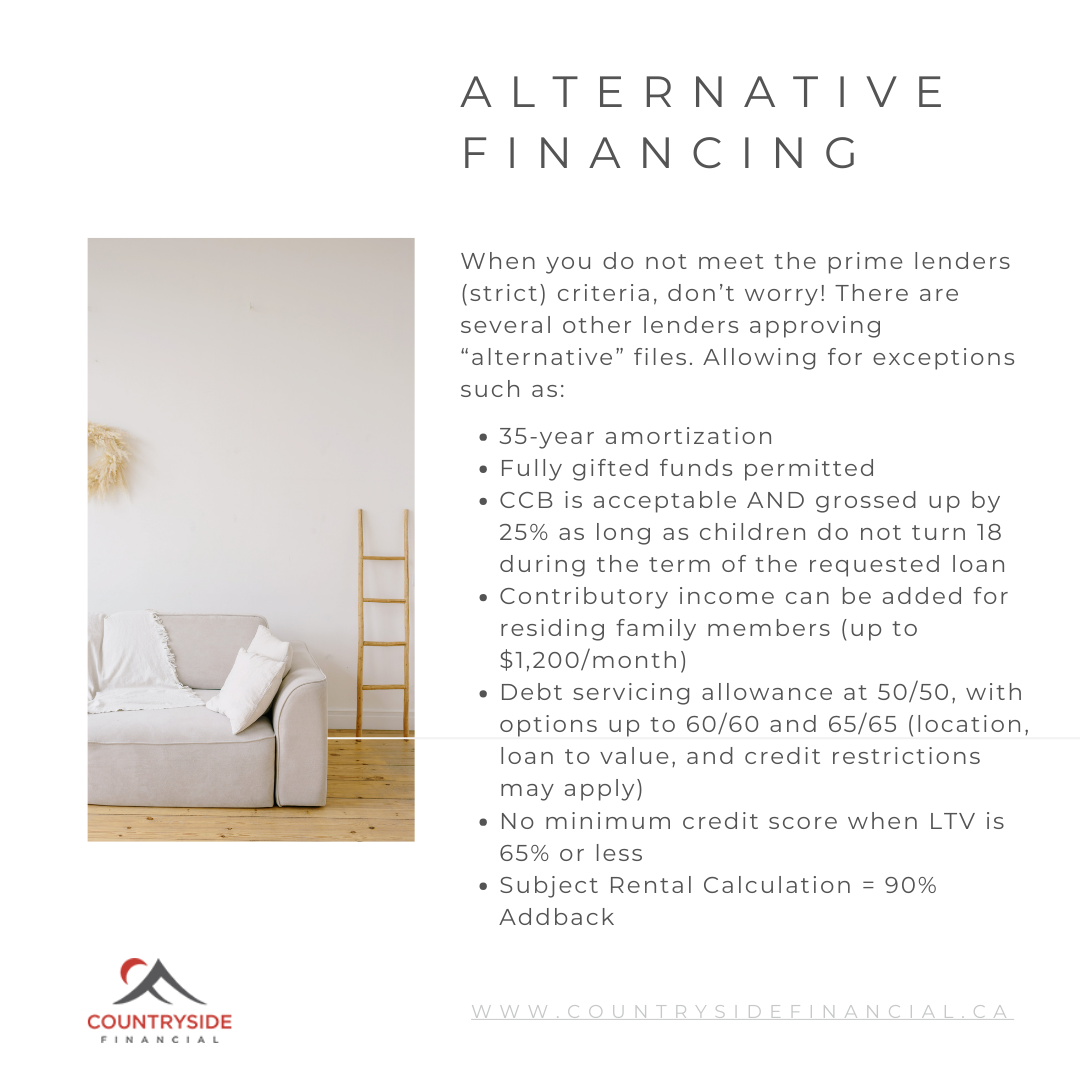Refinancing is the process that repays your existing mortgage and starts a brand new mortgage, usually for a higher loan amount and/or for a better interest rate.
Most mortgages can be refinanced at any point (there are a few exceptions and your mortgage professional would advise if this effects your file). But, whether or not you should depends on several factors [OAC]:
- What is your prepayment penalty on your existing mortgage? If you’re breaking an existing closed mortgage to refinance, you’ll pay a penalty. Check your mortgage contract and figure out how your lender will calculate your prepayment penalty. Penalties are generally 3-months’ interest on variable-rate mortgages and the greater of 3-months’ interest or the interest rate differential (IRD) on fixed-rate mortgages. Ask your bank or broker for your penalty cost. Your penalty may be very reasonable or it may be fall-off-your-chair high, it really all depends on timing.
- Are interest rates better than what you have on your existing mortgage or do you have a renewal looming? When you refinance, you may renegotiate term, amortization, etc for lower monthly payments or quicker repayment of the mortgage debt.
- Do you have a mortgage renewal coming up anyway? At renewal time, the mortgage may be rewritten just as above with a new or current lender. Lenders love nothing more than to earn a new client a renewal time. You can lock-in 120 days in advance of a renewal date.
- Are you planning a major home renovation or have a big expense looming? It may make sense to take the equity out of your home to pay the renovation expenses and/or any large expenditures you have coming up.
- Are your monthly bills higher than what you’re comfortable with? You may be able to consolidate all your debt into your mortgage. This often betters monthly cash-flow.
- Are you planning to buy RRSP’s/Investment opportunities? You can put your homes equity to work for you and finance the purchase of RRSP and/or investments.
Setting Yourself Up for Success
Improve your credit score
Your credit score is one of the factors lenders use when they consider you for a mortgage. It’s a number that signals your financial health at a specific time. It also gives information about your financial past, and how consistently you pay off your bills and debts. Make sure to:
- Pay your bills in full and on time. If you can’t pay the full amount, at least pay the minimum shown on your monthly statement.
- Pay off your loans, credit cards and lines of credit as quickly as possible.
- Stay within the limits on your credit cards. Keep your balances as low as possible.
- Don’t apply for more credit cards or loans than you can comfortably manage.
Check if you qualify
Try the Financial Consumer Agency of Canada’s Mortgage Qualifier Tool https://itools-ioutils.fcac-acfc.gc.ca/MQ-HQ/MQ-EAPH-eng.aspx to help you determine whether or not you can qualify for a mortgage based on detailed income and expenses. The tool offers unbiased, trustworthy information. We also offer a quick & easy mortgage calculator at https://www.countrysidefinancial.ca/mortgage-calculator/.
Your verifiable income/employment
A history of steady, stable employment – be it self-employment or salaried earnings – is required to qualify. A short time in your current job won’t prevent you from getting a mortgage, as long as there is no probationary period and you are in a similar line of work as your previous employment. If you are hourly or self-employed, a minimum 2-year tax history is required (if you report reduced income to save personal taxes, this does affect your qualification but there may be options with non-prime lenders).
- Gather your recent 2 years of tax returns & NOAs, most recent pay stubs, and ask for a Letter of Employment from your employer. For those self-employed, there may be additional items.
Your property
The lender may request an appraisal report to be completed as a condition of the mortgage. Besides value, lender will also review the overall condition, economic life, comparable properties, etc.
- Gather your current mortgage/HELOC statement, property tax assessment and property tax bill.
Shop around
Engage a Mortgage Broker who is an independent financial advisor that specializes in the mortgage industry, facilitating a mortgage between a borrower and a lender. Brokers are experts in every available choice of financing for your home. There are over 60 mortgage lenders in the marketplace right now – each offering different mortgage products and interest rates. A Mortgage Broker finds the best-fit mortgage for your particular circumstance. And, in most cases, a Mortgage Broker’s work is without charge to the borrower! Broker’s are paid a commission from the lender.
Borrow less than you’re allowed
Prime mortgage lenders use 2 rules to decide how much they’ll lend you:
- Your housing costs cannot be more than 35% (39% for those considered well-qualified) of your gross monthly income. Housing costs include mortgage principal and interest, property taxes, heating expenses, to also include other potential fixed costs such as water hauling, leased-land fees, HOA fees, condo fees, etc.
- Your total debt (all housing costs as per above, plus car payment, credit cards, child/spousal support, etc) cannot be more than 40% (44% for those considered well-qualified) of your gross monthly income.
Borrowing this maximum amount can be risky. If your income drops, your expenses increase, or interest rates rise, you may have trouble making your payments. Take on a smaller mortgage than your maximum so that your housing costs stay within your means.
Refinancing rule of thumb … you want to apply to refinance before you need to refinance.






